Mary Reynolds Thompson's Blog, page 2
March 30, 2018
The Deer King by Rob Lewis
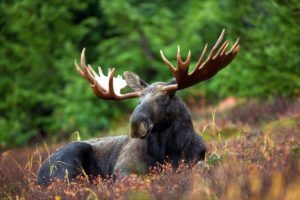
When the story begins: “scientists report…”
we have come to expect bad news;
and to prepare for data.
Only here is an image:
a moose calf behind some shrubs,
her belly, haunches, even her ears studded
with the small, grey swelling balloons of winter ticks
packed tight, side to side at the trough of her body.
Another weak winter fails into spring
and, as we are learning,
too like cold-kill blossoms a monster:
logarithmic, carpet-like, inescapable.
*
A moose is:
the furthest extent of a form,
a vast deer, surpassing even the elk.
A human being can lay head to toe
in the velvet basket of its antlers.
It is a forest moving through forest
browsing for tender leaves.
*
“Parts per mission?”
scoffs the senator.
“Show me the parts.
Show me the millions.”
Here, sir. Open the gate
of these branches,
look long.
(c) Rob Lewis
From “The Silence of Vanishing Things”
* What is the natural image you’d like to share with the scientist? Why that one, particularly?
* Begin a poem with the words: “A [name of natural being] is….” Use all your descriptive powers.
* Select an environmental topic you care most about–then write about it in poetry. What do you notice?
The post The Deer King by Rob Lewis appeared first on Mary Reynolds Thompson.
Write Your Wild Soul Story
I first heard the word, “Restory-ation” in  Robin Wall Kimmerer’s wonderful book, Braiding Sweetgrass. She was quoting Gary Nabhan, who believes that restoring the land has to begin with hearing its stories. “But who will tell them?” he asks.
Robin Wall Kimmerer’s wonderful book, Braiding Sweetgrass. She was quoting Gary Nabhan, who believes that restoring the land has to begin with hearing its stories. “But who will tell them?” he asks.
I believe in the “restory-ation” of our own wild soul stories too.
The shallow, soulless stories that hold sway in our materialist culture de-wild us and separate us from the natural world. My passion has always been to re-root our stories in the land and in our own wild psyches.
This is will be the focus of a Rewilding the Soul retreat I am giving with my husband Bruce at Hawkwood College in Stroud, May 3-6.
To experience your own restory-ation writing process, read on.
1. Latch onto a story that you tell about yourself that you know, deep inside, is a limiting story. It’s a story that might be a shame-based. It certainly it keeps you tame–held back from living fully and full-out. For example, I got the message very early on that I was “too much.” That old story kept me silenced and shackled for quite a long while.
2. Write that story. Take about 10 minutes and begin with these words, “The story I want to release is the story of….”
3. Read back through this story and reflect: What do you notice? What stands out for you? Spend a few minutes jotting down your thoughts.
4. Visit a beautiful place in nature that feels deeply nurturing to you. Find something that is naturally dying and decomposing–perhaps a piece of old bark or a leaf or twig. Write the “name” of your old story on it using a pen or simply your finger. So, for example, mine might be “The Story of Too Much.”
5. Now place your leaf or twig in a safe spot and feel how the land accepts it so gently and without judgement. Here, your old story will simply decompose, naturally and without effort.
6. As you contemplate your ‘released story,’ write your answer to these three questions:
As I let this go, my body feels …
As I let this go, my soul feels …
As I let this go, I make room for …
Know that you can return again to this place again and again, as you start to gently release your tired and tame stories that hold you back.
And please, share the name of your old stories below, or any part of your process. I’d love to hear from you.
The post Write Your Wild Soul Story appeared first on Mary Reynolds Thompson.
February 6, 2018
The Burden of Humans
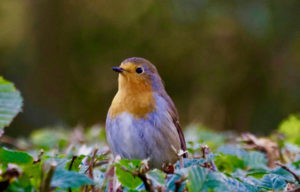
The grass just has to wave, the birds just have
to sing. The grapes don’t wonder what light is;
the light just lights them, and the grapes grape back.
The golden oaks just shed their summer dresses
on the lawn—but you? You have to read
Spinoza in the garden while the light
is good. You have to keep your focus as
the motorcycles scream out of the purple hills.
You have to sweat, and laugh, and weatherproof
the bedroom windows, and remember
names and dates, the town where your parents met—
Milk River or Swan Hills?—and when they died,
you have to sweep the kitchen floor and then
define the good, the true, the beautiful,
or try, because azaleas can’t see themselves,
the squirrels are busy, and the ferns have closed.
The frost tattoos its sermon on the rose,
but in a language only you can read;
you have to know that all things pass and perish,
and that what you’ve said is finite, but continue—
as if grand exceptions might be made—
raking the leaves, stacking the wood, hoping
the child falls asleep against your chest,
hoping the blizzard swerves, knowing the wreckage
of the present will be gathered but
not soon, and not by you, because you’re in it,
there somewhere, under the sheet of snow.
(c) Michael Lavers
Begin a poem with the words, “The grass just has to wave…”
What is the language only you can read?
How does your understanding that “all things pass and perish” affect the way you live?
The post The Burden of Humans appeared first on Mary Reynolds Thompson.
Why Can’t We Talk About Climate Change?
I am just returned from my morning 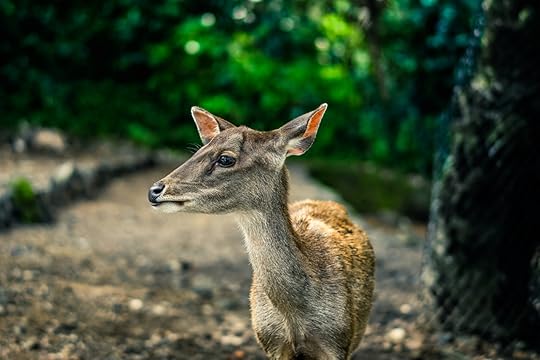 walk up the hill behind my home. The air is silky-smooth and the sun too intense for February. The hills have yet to own their greenness due to lack of rain. It’s an upside down kind of day, when it’s easy to confuse winter, spring, and autumn. The seasons are all mixed up in my head.
walk up the hill behind my home. The air is silky-smooth and the sun too intense for February. The hills have yet to own their greenness due to lack of rain. It’s an upside down kind of day, when it’s easy to confuse winter, spring, and autumn. The seasons are all mixed up in my head.
Another couple passes me, thighs like pistons. They’ve already climbed and descended two other valleys and are freely sweating. “It’s too warm for this time of year, ” the woman tells me. I agree, and then hear their story: they live in Santa Rosa and only just escaped last October’s devastating fires. Heat and drought are not words they welcome; they have already been scorched.
I say, “I’m afraid this is the new normal, the climate is changing.” The man looks away from me, quickly changing the subject. It’s clear that he doesn’t want to hear what I am about to say next. Discussing climate change is not an option. In our love of hiking we have so much in common, but we are not living the same story. And in this moment a divide opens up between us that feels almost impossible to bridge.
Why is it so hard to talk about the things that matter? How is it that this outdoors man and I have ended up on different sides of the political spectrum, or certainly the climate change debate? Of course, I know the answers––or at least some of them. Our increasingly silo-ed existences, listening to the echo chamber, the choir, the attacks on science, the massive funding of climate change denial. I know all this–but I am still shocked at the way this man shut down.
I have a habit of sidling up to folk, not unlike a deer in the forest, to gently test their beliefs. I am looking for common ground, wanting to know how they think and feel. I want to believe that everyone I meet on the trail is concerned with what we’re doing to the environment, is advocating for carbon emission reductions, for more forests and cleaner air. I want to believe that if you love to hike, you necessarily long to protect the natural world with eyes wide open. Even if it hurts to reflect on what we as humans are doing to the Earth.
In the story I am living, we humans are at a pivotal moment. We can either look with clear eyes at what we are doing to the Earth, and change. Or we can look away. The ending of this story is dependent on the choice we make.
The post Why Can’t We Talk About Climate Change? appeared first on Mary Reynolds Thompson.
January 3, 2018
What Are the Gifts of Gratitude?
My word for the year is gratitude. 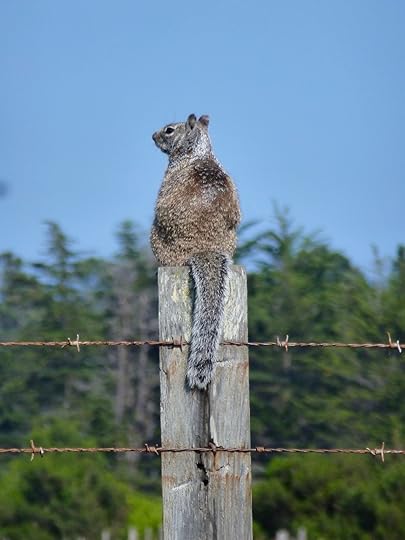 I chose it because I spent much of 2017 railing against man and the machine. So much of the news enrages me. So much frightens me. I also have a natural talent for seeing what’s wrong, but struggle sometimes to appreciate what’s working.
I chose it because I spent much of 2017 railing against man and the machine. So much of the news enrages me. So much frightens me. I also have a natural talent for seeing what’s wrong, but struggle sometimes to appreciate what’s working.
So this year, I am practicing gratitude, which may seem like a misguided choice in the face of so much destruction and devastation. But is it?
W.S. Merwin writes in his extraordinary poem “Thanks”:
with the animals dying around us
our lost feelings we are saying thank you
with the forests falling faster than the minutes
of our lives we are saying thank you
Merwin’s poem tells me that gratitude isn’t based on things going my way. Gratitude, if it is to have power, must be present whatever is happening. In a poem devoid of punctuation, that rushes breathless onto the page, gratitude becomes a bulwark against cynicism and despair. It is a fierce gratitude, free of sentimentality.
Gratitude is also a way of paying attention. When I hike, I tend to thank things around me as I go. I thank the oak tree for the shade; the red tail hawk for the aerial show; woodpeckers for their drumbeats. I often touch a blade of grass or tree trunk, and murmur, thank you. I feel more connected to my surroundings when I adopt an attitude of gratitude. I feel more connected to myself as well.
Gratitude feels holy, a kind of benediction. The root of benediction is simply to speak well. When I am in a state of gratitude my words and actions bless the world rather than fight with it. I am in a state of awe rather than of anger.
Alice Walker writes, “Thank you is the best prayer that anyone could say.” In adopting “gratitude” as my word for the year, I am seeking to live more prayerfully, more aware of all that I love and am touched by.
Gratitude is saying, I have enough, I don’t need more. Imagine a world where we all practiced feeling grateful for what we have, rather than looking at what we lack.
I don’t know where this year of gratitude will lead me. But maybe, in the words of Mary Oliver, “My work is loving the world.” Maybe it’s just that simple. And, given the times we live in, that difficult as well.
The post What Are the Gifts of Gratitude? appeared first on Mary Reynolds Thompson.
A List of Praises
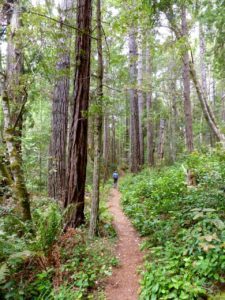
Give praise with the sound of the milk-train far away
With its mutter of wheels and long-drawn-out sweet whistle
As it speeds through the fields of sleep at three in the morning,
Give praise with the immense and peaceful sigh
Of the wind in the pinewoods,
At night give praise with starry silences.
Give praise with the skirling of seagulls
And the rattle and flap of sails
And gongs of buoys rocked by the sea-swell
Out in the shipping-lanes beyond the harbor.
Give praise with the humpback whales,
Huge in the ocean they sing to one another.
Give praise with the rasp and sizzle of crickets,
katydids and cicadas,
Give praise with hum of bees,
Give praise with the little peepers who live near water.
When they fill the marsh with a shimmer of bell-like cries
We know that the winter is over.
Give praise with mockingbirds, day’s nightingales.
Hour by hour they sing in the crepe myrtle
And glossy tulip trees
On quiet side streets in southern towns.
– Anne Porter, from ‘A List of Praises’
Go for a walk outdoors and pay attention to everything around you. Then write a praise poem beginning with the words, “Give praise with….”
Practice giving praise each day for a week. What do you notice? What surprises you? Explore your answers in your journal.
Write a simple list of things you’d like to praise, everything from fresh air to soft sheets. Keep adding to your list throughout the year, until it fills the pages of a journal.
The post A List of Praises appeared first on Mary Reynolds Thompson.
October 20, 2017
Free Writing for Resilience Workshop: The Healing Power of Literary Landscapes
I took refuge in books at an early age. Books were my first escape. When the adult world around me became too confusing or hurtful, I found comfort in losing myself in stories with a strong sense of place.
Recently, in a year of turmoil and tragedy, I have taken refuge in childhood books with familiar and beloved landscapes. “The Secret Garden” by Frances Hodgson Burnett is a favorite.
An orphaned girl called Mary is angry and sour when she arrives from India to her uncle’s house set amid the Yorkshire moors. There she meets Colin, a wild child of the moors with an affinity for animals and her sickly cousin who believes he is dying. Together, they bring a secret garden back to life. And in the process, heal themselves.
I have also been on a binge of Laura Ingalls Wilder. I love her crisp, clear prose. Her descriptions, most particularly of the wide open prairies of Missouri, captivate me. The howling winds and the fierce winter snows. The sun rising and setting over vast horizons. Swarms of grasshoppers so thick you can’t breathe.
These literary landscapes have been my sanctuary, and even more so after the recent fires that raged close by in Sonoma and Napa. Like snuggling under the covers, I have taken comfort in different worlds, different times.
And thus, for our second, free Writing for Resilience workshop, Kate Thompson and I are going to walk you through two-part write about a favorite literary landscape.
You don’t have to choose a childhood book. Just a book in which the landscape feels to you as if it is a character, or even the main character, such as the the moors in “Wuthering Heights”, or the Cornish coast of the Poldark series, or the vast prairies of Willa Cather.
Enjoy this free offering. It’s our way of using writing to help bring healing in troubled times. And please share your write, or simply the books you wrote about and why, below.
The post Free Writing for Resilience Workshop: The Healing Power of Literary Landscapes appeared first on Mary Reynolds Thompson.
October 13, 2017
Free Audio Workshop: Writing for Resilience–Shifting Our Emotional Landscapes
Last Sunday, my husband and I attended an event called “Indigenous Wisdom and Resiliency in Challenging Times.” Ilarion Merculieff of the Aleuts shared spiritual and practical wisdom from indigenous traditions about how to face the crises that are impacting us and the Earth.
That evening, the winds picked up, then roared throughout Northern California. Fires that started as small sparks in Sonoma and Napa at around 9 pm, spread rapidly as wind gusts reached 85 mph. At 2:00 a.m. my husband and I awoke choking from the smoke that filled our bedroom. We are alright, but thousands aren’t.
Communities north and east of us have been decimated by fire, and continue to be. The loss of homes, livelihoods, and tragically, lives, mounts daily. Fires have torn through wild lands and devastated wildlife. It is hard to breathe at times, and not just because of the smoke.
In so many ways, the map of our communities have been irrevocably changed.
I volunteered at a local church to help with supplies, we have given money, but I wanted to do more. Recalling Ilarion’s talk on resiliency, I realized I needed to help nurture resilience in a way that was congruent with my own gifts and training. I joined with my journal therapist colleague Kate Thompson to do what we do best: facilitate writing workshop. This is the first of three workshops on Writing for Resilience we will be offering in the next few weeks. Though it isn’t easy, in time, and in our own way, we can make our way back to an emotional landscape that feels more nurturing and supportive.
In the spirit of healing, please accept our gift to you.
The post Free Audio Workshop: Writing for Resilience–Shifting Our Emotional Landscapes appeared first on Mary Reynolds Thompson.
Free Workshop: Writing for Resilience–Shifting Our Emotional Landscapes
Last Sunday, my husband and I attended an event called “Indigenous Wisdom and Resiliency in Challenging Times.” Ilarion Merculieff of the Aleuts shared spiritual and practical wisdom from indigenous traditions about how to face the crises that are impacting us and the Earth.
That evening, the winds picked up, then roared throughout Northern California. Fires that started as small sparks in Sonoma and Napa at around 9 pm, spread rapidly as wind gusts reached 85 mph. At 2:00 a.m. my husband and I awoke choking from the smoke that filled our bedroom. We are alright, but thousands aren’t.
Communities north and east of us have been decimated by fire, and continue to be. The loss of homes, livelihoods, and tragically, lives, mounts daily. Fires have torn through wild lands and devastated wildlife. It is hard to breathe at times, and not just because of the smoke.
In so many ways, the map of our communities have been irrevocably changed.
I volunteered at a local church to help with supplies, we have given money, but I wanted to do more. Recalling Ilarion’s talk on resiliency, I realized I needed to help in a way that was congruent with my own gifts and training. I joined with my journal therapist colleague Kate Thompson to do what we do best: facilitate writing workshop. This is the first of three workshops on Writing for Resilience we will be offering in the next few weeks. Though it isn’t easy, in time, and in our own way, we can make our way back to an emotional landscape that feels more nurturing and supportive.
In the spirit of healing in troubling times, please enjoy our gift to you.
The post Free Workshop: Writing for Resilience–Shifting Our Emotional Landscapes appeared first on Mary Reynolds Thompson.
October 4, 2017
Stars
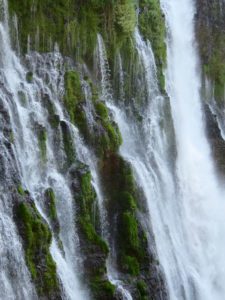
You think you can define me,
That I’m a tick in just one box,
Like my being is a door,
That a single key unlocks,
But let me tell you something,
I have the universe inside,
I hold an untamed ocean,
With a constant changing tide,
I’m home to endless mountains,
With tips that touch the sky,
Flocks of grand migrating birds,
And deserts harsh and dry,
I house the wildest rivers,
And a host of sweeping plains,
I feel in waves of sunshine,
Or in unrelenting rains,
Don’t tell me that you know me,
That “this right here is what you are”,
I am the universe in motion,
For I was born from stars.
© Erin Hanson
Describe the universe you have inside. What does it hold?
Begin a poem with the words, “You think you can define me….” Let the words flow.
If you really understood in your deepest being that your were born of stars, how might you live your life differently?
The post Stars appeared first on Mary Reynolds Thompson.



